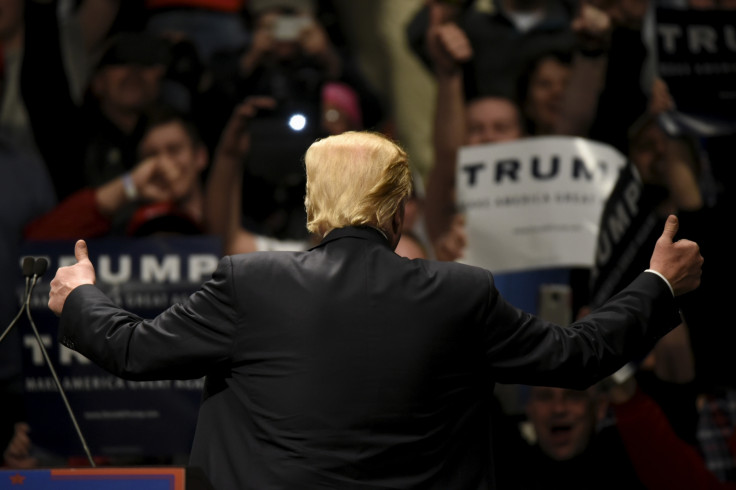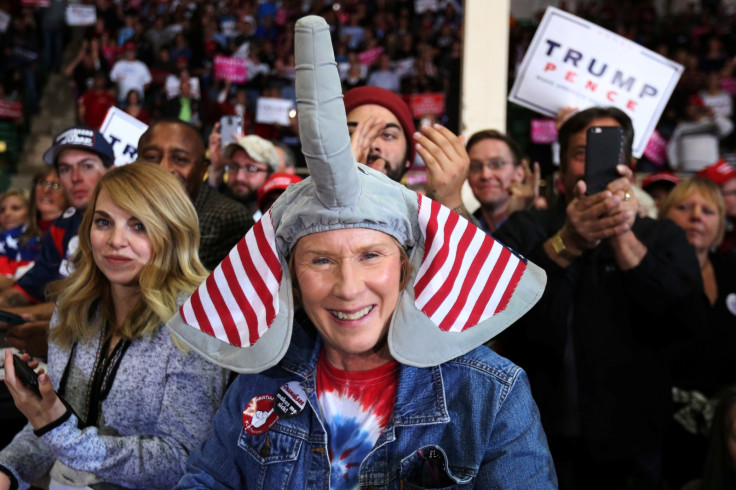How booze and the ten commandments override talk of Trump vs Clinton in Oklahoma
Conservatives in the 'Sooner state' are voting on much more than who they want as president

Oklahoma will vote for Donald Trump to become the next president of the United States: it hasn't voted in a Democrat since 1968. Stat-savant site FiveThirtyEight gives Hillary Clinton a less-than-0.1% chance of taking the 'Sooner state'.
This isn't necessarily down to Trumpmania: Few I've spoken to here have voiced much support for the New York billionaire. They'll vote red because he's red, not because they much want him in. "The lesser of two evils" appears to be this election's unofficial motto.
But there are seven other questions on Oklahoman ballot papers this election. Given the amount of checks and balances placed on an incoming president, they are arguably more important within the state than who occupies the Oval Office come January.
The questions address shibboleths of life in Oklahoma, the buckle of America's Bible Belt: religion; agriculture; temperance and taxes. If they go the way of progressives – which is likely – they will provide more of a departure from the traditional way of life here, than any national leader could.
Oklahoma is not the only state with a packed ballot paper: Countrywide Americans will vote on 162 "ballot measures" – presented as 'yes' or 'no' questions – which can help progressives or conservatives circumvent elected officials. This is fewer than 2012's 188 measures. But it is still significant, and promises seismic shifts on some of America's hottest social topics.
California and eight other states will vote to legalise marijuana, a movement whose national success appears all-but certain. Minimum wages and gun control are also up for modernisation. Other American reforms passed through state questions include women's suffrage and the eight-hour working day.
In Oklahoma, where the presidential race is all-but over, and Republican James Lankford, a staunch fiscal and social conservative, will almost certainly win its senate seat, state-wide suspense hangs on the questions.
Among them four are particularly divisive. Question 792 will allow regular stores to stock "strong beer" (anything above 3.2% alcohol), wine and liquor. Right now 26 of 77 Oklahoman counties are "dry", clinging onto Prohibition-era laws chiefly for reasons of religious temperance.

Question 780 will declassify some drugs and property crimes to ease the state's chronic prison overpopulation. 777 will make it tougher to regulate farming. 790, prompted by the erection of a ten commandments monument at the State Capitol in Oklahoma City, would allow the state to open funds for religious purposes.If it passes, Hindus and Satanists have promised to erect their own statues.
But 790, and the other contentious questions, are widely expected to go the way of progressives: easy access to alcohol, liberal sentences, tighter farming regulation and separation of church and state. If and when they do, they will represent a sharp departure from traditions that have endured here for over a century.
America is increasingly urban, liberal and brown.
This election has been pitched by many as a battle between urban and rural ways of life. In Oklahoma – whose existence was forged mostly by white, religious farmers – that is truer than most states.
For progressives, the questions are a chance for Oklahoma to modernise in line with the rest of the country, stymieing conservatives who have dictated state policy for decades.
For conservatives the questions hold different meaning. Their world is disappearing around them. America is increasingly urban, liberal and brown. State questions are a way to claw conservatism back from the immovable tide of social liberalism, before it consumes Oklahoma altogether.
A friend of mine described this cultural tug of war using a Spanish phrase, 'patadas de ahogado' (the flails of a drowning person). Even in one of America's reddest states the world is changing. A Democrat is unlikely to seize the 'Sooner state' for several elections to come. If ballot measures go the way of social progressives, it might not matter that much.
Sean Williams is a freelance journalist based in Berlin.
© Copyright IBTimes 2025. All rights reserved.






















